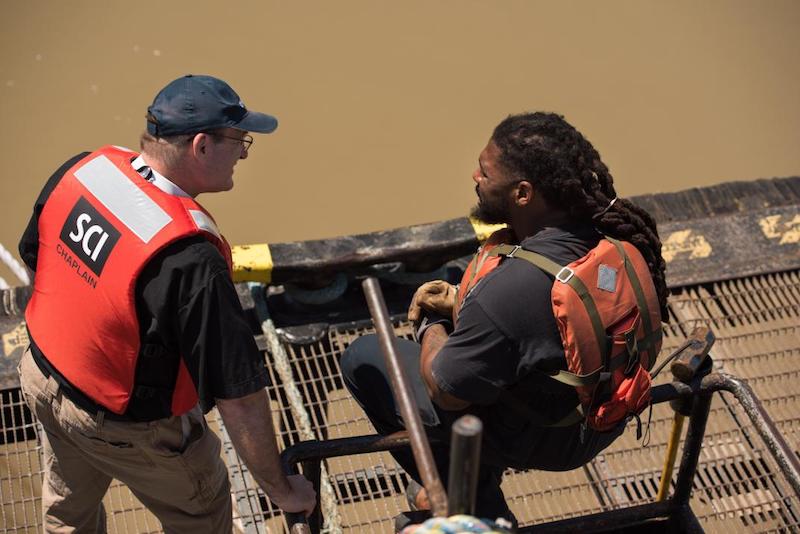As essential workers, inland mariners have been under a lot of stress during the pandemic, working longer hours in often dangerous conditions, complying with new safety directives, and worrying about their health and that of their families.
Normally, river chaplains with the Seamen’s Church Institute would meet with mariners on vessels or shoreside, offering counseling or just a reassuring word to those feeling emotionally drained or down. But such interactions have been severely cut back due to Covid-19 restrictions.
To continue to support mariners and shoreside personnel during these stressful times and beyond, SCI is forming “Resilience Crews,” virtual conversations composed of a small group of mariners and led by a SCI chaplain. The idea is to give an outlet for mariners to talk about things that concern them and learn coping skills to overcome challenges and adversity.
“It’s difficult to take care of ourselves, but there’s never been a time that we need to do more self-care than right now,” said the Rev. Tom Rhoades, a former towboat deckhand and cook who is now an ordained chaplain with SCI’s River Ministry program.
Having a chance to meet with others “give us the support we need to build ourselves up,” Rhoades said during an Aug. 4 webinar organized by the American Waterways Operators.
The small groups started with women working shoreside and are now being organized for mariners in a second phase.
“The pandemic certainly increases stress and need, but these services for resilience in day to day as well as traumatic stress are sorely needed anyway,” Rhoades said via email. “As an industry, we have done a great job of generating a culture of safety for most companies. But the next 30 years we need to cultivate a culture of mental health. Whole-person wellness is the best way to accomplish a better sense of well-being.”
SCI is using a format developed by the Living Compass Wellness Initiative “which has created an infrastructure that helps participants take small steps in accomplishing goals that generate better health,” said Rhoades, who works with towboat and tug crews in the Lower Mississippi, Intracoastal Waterway and Houston Ship Channel.
Rhoades said it’s important that health and safety managers at inland barge companies encourage employees to participate, and he suggests that managers also join a group. “The healthier we are shoreside, the better we are able to respond to the needs of our mariners out there.”
Achieving wellness is hard work, he added, because it requires motivation, support and changing life patterns.
Finding resiliency during tough times is something that can be taught before a person is in under great stress or in a crisis, Bernadette St. Amand, a SCI river chaplain associate who is creating wellness opportunities for mariners and their families, said during the webinar. Meeting in small groups with others who share similar experiences and where the dialogue is open and nonjudgmental is a way to learn new skills, she said. Groups meet for four-to-six weeks and each session would be an hour long and held on Zoom.
Ludy Brinck, a shoreside sales director with ACBL, said she reluctantly joined a group, unsure what to expect. Participants shared experiences and challenges, especially regarding life-work balance. “This made me set aside time for personal growth and I made a network of friends, and we continue to meet,” she said at the webinar. “I’ve become a big advocate of the program.”
For more information, email [email protected].




